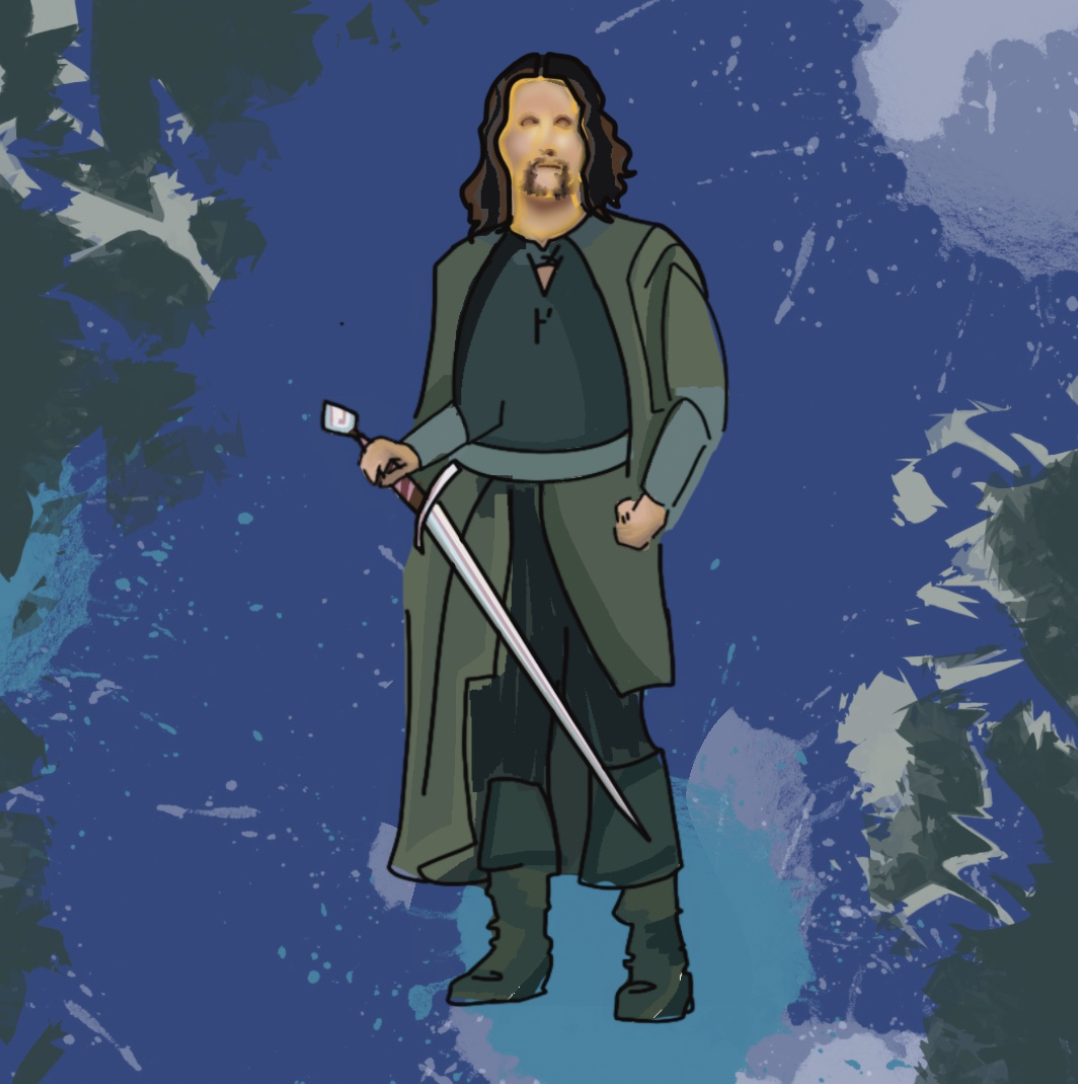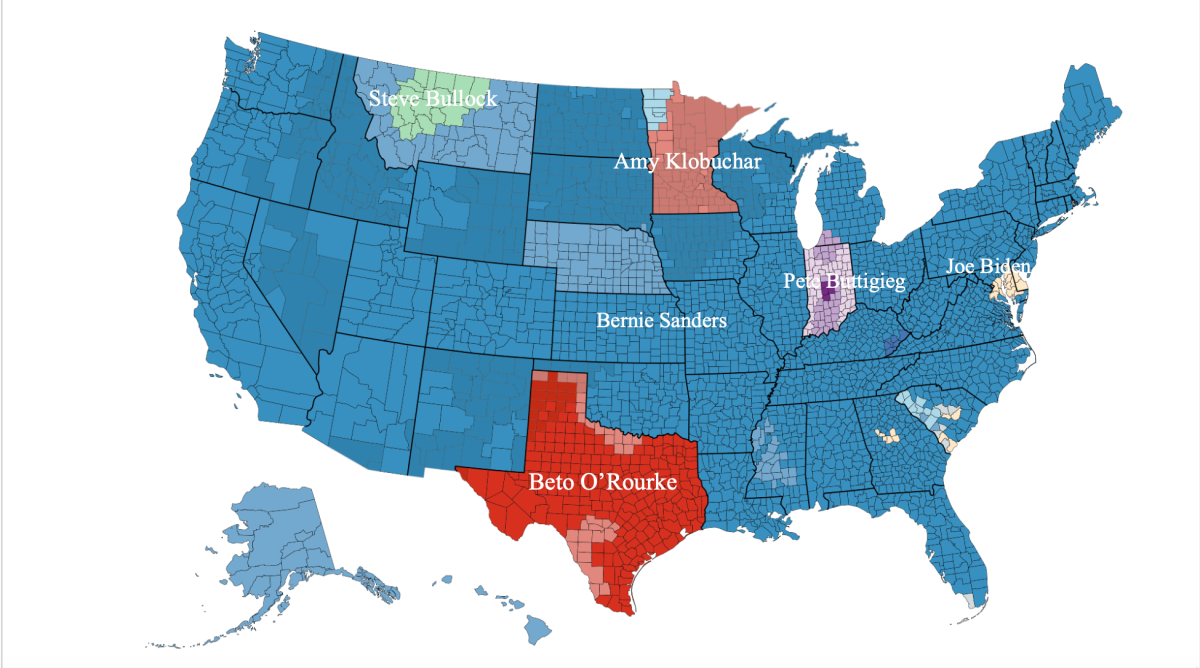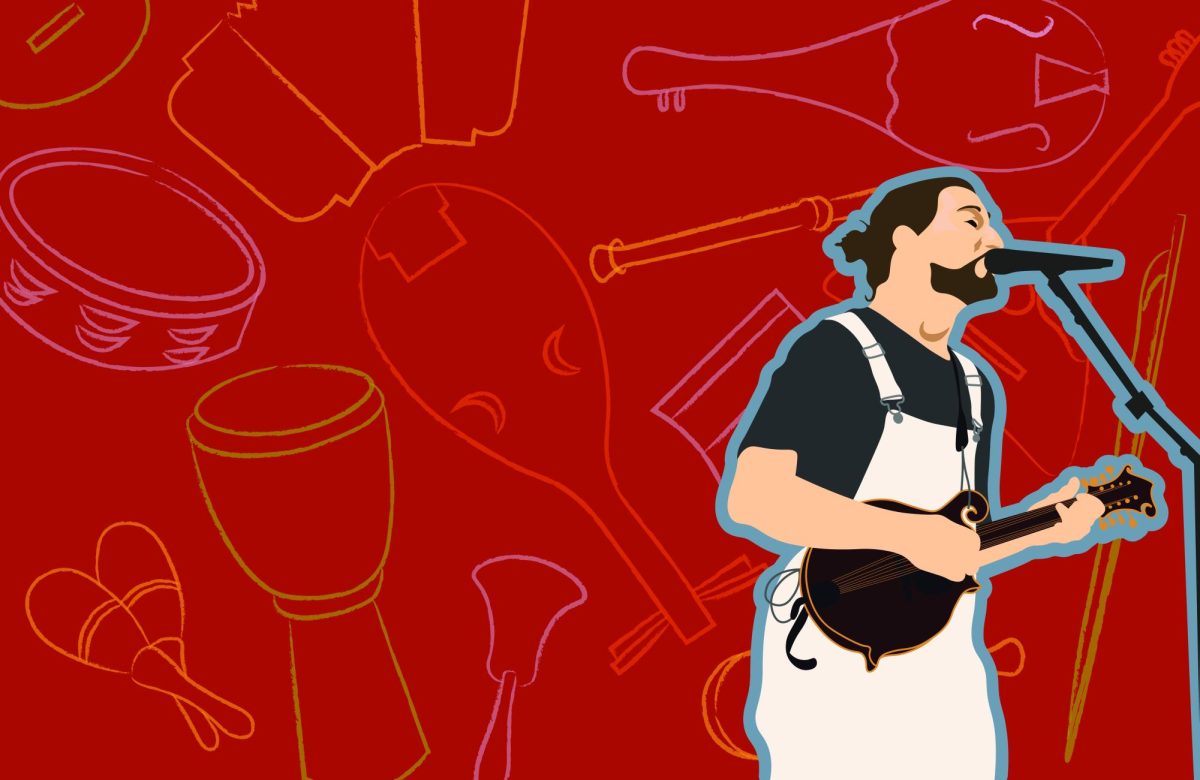King Aragorn II once said, “I would have gone with you to the end, into the very fires of Mordor,” as he held Frodo’s hand and handed him the ring. This is one example of many male characters in the “The Lord of the Rings” franchise that are portrayed as kind, gentle and emotionally complex. This is something that many pieces of media lack when creating masculine characters. Before we get into the reasons why we need more representation of positive masculinity in the media, let’s talk about what we already have.
As I’ve already brought up, Aragron from “The Lord of the Rings” is my favorite male character in any piece of media to date. Not only is he portrayed as a strong fighter and noble king, but he’s in touch with his emotions and empathetic to the other characters he surrounds himself with. Aragorn never falls short when making sure that characters like Frodo or Sam — who were both thrown into a quest neither felt they were built for — are safe and doing well after facing dangers they haven’t witnessed before. He’s also unafraid to show the love he feels for others, as you read in the opening quote. Many men in the real world believe that loving someone and showing it is a sign of weakness.
While on the same topic of “The Lord of the Rings,” Sam and Frodo are both interesting, emotionally deep characters. Frodo never fails to pull you in and he isn’t afraid to cry. In scenes where Frodo is shown crying, he is going through changes and/or an internal struggle. Frodo and Sam as characters are especially fascinating examples of masculinity because neither of them are perceived as “manly.” They’re little hobbits. No one expects them to be saving the world, but they do. Neither of them are strong enough to do most things normal men like Aragorn or Gandalf can, but they have the strongest wills and mentalities of anyone in the franchise. Frodo’s resilience to never give up and to keep going is something he never strays away from and Sam’s dedication to be by Frodo’s side no matter how many life threatening dangers they face is something that makes him one the best characters in the franchise.
Sam and Frodo’s dedication to each other is one of the best representations of male friendships in the media. They’re completely platonic and yet, they show one of the best interpretations of love seen in any film. Sam and Frodo are the blueprint for healthy male friendships. They’re both unafraid to show physical affection with one another and would (quite literally) die for each other. They never show romantic attraction to each other, showing that it’s okay to be a man to show affection to his male friends. This could be applied to the lives of real life men who choose not to have friends of the same sex, with a fear that others might think they’re gay. If you’re a man that ever feels this way about having male friends, just watch a “The Lord of the Rings” movie.
Frodo will show you that it’s okay to not be okay sometimes.
Sam will show you that it’s okay to love someone of the same sex platonically.
Aragorn will show you why it’s okay to be emotional and still be seen as manly.
Let’s stray away from “The Lord of the Rings” and talk about Augustus Waters for a minute.
When John Green first published his novel “The Fault in Our Stars” in 2012, readers immediately fell in love with the character Augustus. He was a star basketball player who was diagnosed with cancer and lost his leg in the process of being cured. In a lot of ways, Augustus performs his own existence. This is why there are two versions of his character in the novel. The first version we meet is the facade called Augustus Waters. Named after the first Roman emperor, Augustus plays a strong, confident, funny and charming boy. He continuously fetishizes his own dignity. He is convinced that the importance of life is being heroic, leaving a noble legacy, monumentally impacting humanity. This version of Augustus fumbles over monologues in the park. He over-plans picnics down to the last excruciating detail, purely for stage-like effect. He is deluded by showy metaphors of his own self-vision, like when he sacrifices himself in a video game by jumping on a grenade in order to save children.
As his cancer returns, however, all of this performance falls away. What remains is Gus, a teenage boy in Indianapolis who used to be a star athlete and now finds himself dying from cancer. Gus is the boy his parents have always seen. In fact, Hazel only learns his nickname is “Gus” because it’s what his parents call him. Hazel doesn’t love him any less for being Gus. Quite the contrary, she starts calling him Gus rather than Augustus only after they’re familiar with one another, and Hazel knows him fully. She sees that, underneath the romantic gestures and theatrical grandiosity, Gus is a sweet, caring and understandably terrified seventeen year old boy. His love for Hazel is what teaches Augustus that it’s okay to be Gus. As he deteriorates physically, he’s forced to confront the fact that he’ll die without doing anything monumental for humanity and a deeper spiritual transition takes place. Because of Hazel, he comes to realize that failing to do something extraordinary does not equal being insignificant.
Over the course of the novel, the true Gus reveals himself through a gesture: the act of placing a cigarette in his mouth. The cigarette metaphor serves as a link that binds the two identities. This is because the cigarette reveals the opposite of what it is meant to project. Augustus wants the cigarette to represent his control over the thing that could kill him, but it really is a device he relies on when feeling most vulnerable, when he’s most like Gus. He grabs for the cigarette at times of uncertainty, like when he first meets Hazel or when he’s on a plane.
Gus’ entire transformation throughout the novel shows that men can be whoever they want to be. Gus ends up becoming the person he tried to keep hidden behind the “Augustus” mask. Men don’t need to be heroes or a ladies’ man to make their mark on the world, and Gus’s character proves that.
Gus shows that it’s okay for a man to feel fear, or to be afraid of the unknown. Gus proves that you’re not less of a man because you’re afraid.
2012 was a wild year for movies, but my favorite of the bunch was the beginning of the “The Hunger Games” saga, which conveniently had another fantastic example of positive masculinity.
Peeta Mellark is one of the most important characters in “The Hunger Games,” and is also one of the biggest reasons why the story goes on. His actions, his feelings and his personality all contributed to the story significantly.
“The Hunger Games” is about two tributes from each of the 12 districts fighting to the death until there is a victor, or in this case, victors. Alliances form and grow, tributes live and go and viewers are given a show. In the end, two people wear a crown as victors. The reason there were two victors in the end was because of Peeta. His feelings for Katniss helped spark a flame in her and that spark wouldn’t have started if it wasn’t for Peeta’s personality. Peeta is simply himself, and that’s just who he is. Peeta is most certainly a kind and truthful person.
Peeta’s kindness is shown throughout both the books and the films, mainly because of Katniss. The things he is willing to do for the people he loves are undoubtedly courageous. For example, Katniss talks about the time Peeta gave her hope during a time of despair. When Peeta sees her out in the cold, waiting for her demise, he purposely burns a loaf of bread for her to eat.
Even with his mother beating him up, Peeta still decides to give the bread to Katniss. Peeta helped Katniss during a time of need and eventually, we watch Peeta save Katniss’s life. Peeta saves her from Cato and later in the story, we realize that Peeta risked his life to save her. He suffered a serious cut on the leg, and this almost caused him to die. All in all, the franchise clearly shows Peeta being kind under the worst circumstances. Sometimes it might be a small amount of kindness, but to others, it might be a lot more. The things Peeta is willing to do for his loved ones help us understand what type of person he really is.
Furthermore, we see Peeta as a truthful type of person. We can read about him expressing his true feelings about certain topics. For example, during Peeta’s interview with Caesar Flickerman, Peeta reveals his love for Katniss and lets the whole country of Panem know about his feelings for her. Additionally, we watch Peeta talk with Katniss about how he feels about the games. He tells her about how he wants to die as himself, how he wants to keep his purity and how he is not just a piece of the Capitol’s games. His thoughts about the games leave a huge mark on Katniss. The way Peeta expresses his feelings tell us that he is an honest person who finds ways to speak his mind at certain times.
Peeta is himself. He helps Katniss during times of danger, and he also states his feelings about the games. He is unquestionably kind and truthful, and he is definitely unique in his own way.
Now, I could talk about a lot more male characters that I feel fit the “Positive Masculinity” standard, but why are characters like these so important?
As humans, we often get a lot of our personality traits from the media we consume as kids. If boys are shown movies of men being womanizers or being so “manly” that they show almost no emotion, then they in turn take away these negative traits from the movies. They need to be shown that being themselves and loving others are some of the most important things that contribute to being a good man.
Being emotional and loving your guy friends isn’t weak.
Positive masculinity is something that needs to be explored in the media more. By having access to these characters, men can be taught how to be better to themselves and the people around them.
Nick Keller is an opinion writer. Contact him at [email protected]





Lorraine Keller • Mar 26, 2024 at 7:05 pm
Love your November article! You are the best writer! Makes me want to see the movies…—-love, Grandma Lorraine ❤️